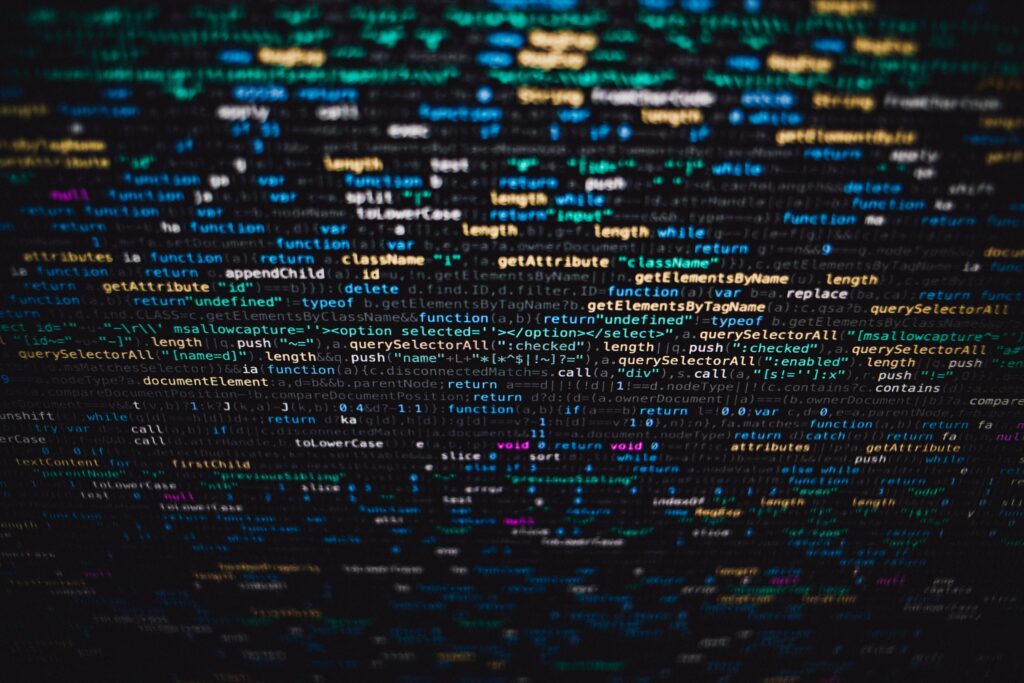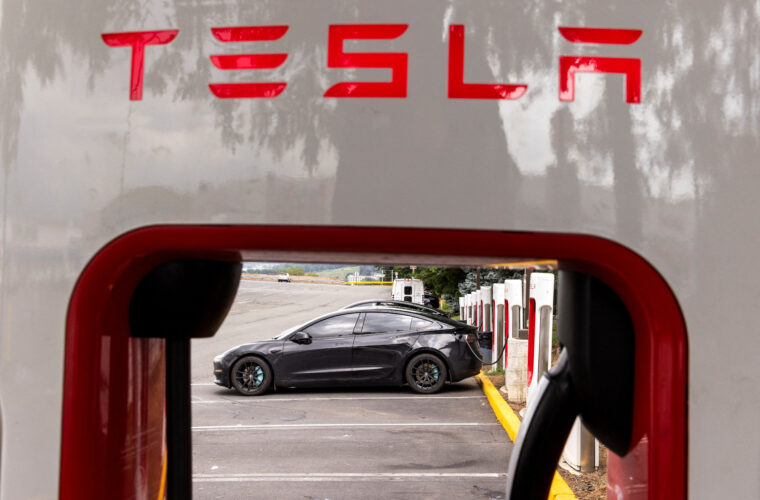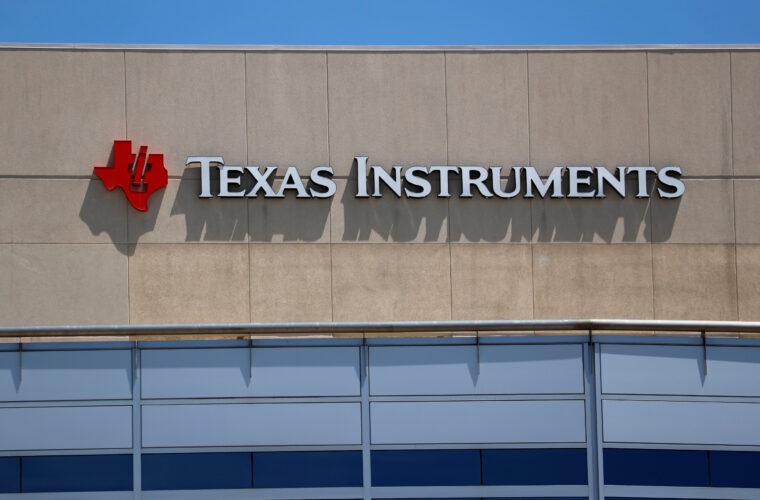Technology event brings together specialists and investors to discuss the cutting-edge in AI innovation
Artificial intelligence (AI) in Europe has the potential to be globally competitive, according to industry experts gathered for France is AI. However, politicians need to plug the investment shortfall and carefully calibrate regulation to make this possible, they said. Calls were made for greater access to funding and for strategy and policy that prevent talent being lost to large foreign technology players.
Due to the restrictions imposed by the ongoing pandemic, France is AI was held entirely online on Monday 16th of November. Talks were structured around AI and related innovation in four areas: retail, industry, healthcare, and cybersecurity. Speakers included AI and quantum computing researchers, industry experts, and innovators. There were also appearances from European policy makers, and the secretary of state for the digital sector in France, Cédric O, gave closing remarks for a second year.
The organiser for the event, France Digitale, is a European start-up organisation representing 1800 companies and 150 investment groups.
“France is a great AI superpower,” said Nicolas Brien, CEO of France Digitale, adding that the nation has strong research expertise and excellent AI start-ups. According to start-up ecosystem mapping by France Digitale, there are a total of 453 start-ups in France with value propositions centred on AI.
Brien also took the opportunity to announce the formation of the France is AI Coalition during his opening remarks. He described this coalition as a lobby group with the aim of influencing AI policy at the European and state level, and he invited participants to join.
“We want regulation to be a bottom-up effort, instead of just something coming out of Brussels or Paris without any knowledge of our ecosystem,” he said.
An important topic of discussion at the event was the nature of AI, quantum computing, and blockchain technologies as sovereign national capabilities. Talks also touched on ethical and regulatory questions about AI, the challenges of finding investment for highly innovative and disruptive technology companies, and the contributions that AI is making to medical and Covid-19-related innovation.
AI in Healthcare
A number of talks at the event focused on how AI could soon transform modern medicine. The most recent generation of AI models, deep learning neural networks, are already making advances possible in research for diagnosis and prognosis of serious diseases.
Deep learning AI models have been outperforming humans in certain image classification tasks since 2015, explained Ninon Bourgos, a researcher at the Paris Brain Institute. This is why medical imaging is a key vector for AI in healthcare. Bourgos has been teaching algorithms to complete image recognition tasks in the diagnosis of Alzheimer’s disease.
Interestingly, deep learning models did not seem to outperform earlier generation AI when processing images of brain scans, but they did seem to be able to offer entirely new insight, Bourgos explained. In particular, through masking parts of images during tasks it could be possible to learn how, and based on which features within the images, the algorithm makes its decisions, she said.
The “black box” nature of AI is a key dimension of ethical and regulatory considerations surrounding the technology. As AI algorithms learn and become more intelligent, they alter themselves. This makes it difficult to consistently monitor and understand how they make decisions.
Deep learning neural networks are also being used in research on cancer diagnosis and assessment of the effectiveness of cancer therapies.
Algorithms are capable of segmentation, which in the context of medical imaging means the ability to delineate different anatomical structures in an image, explained Laure Fournier of the Prairie Institute. The advantage of using deep learning for this task is that through the use of a holistic approach in the assessment of the image, far more insight can be gleaned about the overall condition of the patient.
Looking at many different areas of the body scan at once would usually be more information than a human doctor can take the time to process day to day. While doctors have to focus on a limited number of specific features in an image, far more general scrutiny of the various organs and structures becomes feasible for an algorithm.
“We should be able to soon mine that wealth of information in all images on each individual patient,” Fournier said. This could lead to improvements in diagnostic assessment.
AI in Cybersecurity
With so many people now working and collaborating remotely due to the Covid-19 pandemic, cybersecurity is becoming a serious global concern. Although the event’s subjects were selected prior to the crisis, cyber was a major theme at France is AI. Already, machine learning is being used by companies to massively scale-up the amount of information that protection solutions can process.
“The way our solution works is we basically scan the entire internet across a variety of layers,” explained Camille Charaudeau of CyberAngel.
The company’s solution crawls the internet in search of potential customer data breaches, so that they can be rectified.
CyberAngel collects around 1.2 billion files a day, with each file being cross-referenced for vital key words, Charaudeau said. This scale is where AI models become crucial.
Another focus for AI cybersecurity is email boxes, which are particularly vulnerable targets for cybercriminals. For this reason, a different company, Vade Secure concentrates its solution there.
“Ninety percent of attacks start with an email,” explained Adrien Gendre, the company’s CSO. Vade Secure also uses AI but combines it with computer vision. Rather than looking at the code, the company’s solution scans the visual rendering of emails and websites, doing this across the entirety of its customers’ data supply chains.

Photo by Markus Spiske on Unsplash
Quantum Computing
Although not technically AI, quantum computing also featured significantly at the event: technology which is beginning to move beyond mere concept. IBM, one of the sponsors for France Is AI, was involved in a discussion around the challenges of quantum computing from the perspectives of both hardware and software development.
There are two main aspects of quantum computers that are of interest, according to Aida Todri-Sanial, a researcher from CNRS and the University of Montpellier. One is that they have a quality of parallelism that allows an operational speed that is much faster than in classical computers.
“The second is that we can solve very intractable, or very complex, problems that we cannot solve with classical computing,” she explained.
Instead of the classical computer bits — the 1s and 0s — quantum computers use qubits, leveraging the mathematical principles that govern quantum mechanics. This gives qubits values on a continuous range from 0 to 1, researchers explained.
Fully developed quantum computation could represent the next great technological revolution.
According to IBM’s Olivier Hess, the company has a line of more and more powerful processors, with increasing numbers of qubits, scheduled for development over the coming years: projects for which interested parties are invited to come forward to help with the development of the corresponding software.
While quantum computers are not believed to have entirely superior computational capacity to classical computers, they are predicted to be capable of completing certain tasks incredibly quickly. These tasks could hypothetically take classical computers billions of years to complete.
In a later talk, France Digitale’s Nicolas Brien made a case for why far greater levels of funding for quantum computing is absolutely essential for a strategically coherent Europe.
Quantum computation could soon pose a threat to the modern cryptographic techniques that underpin secure telecommunications in the military, he said.
In the next 20 or 30 years, it is possible that a quantum computer will, in a matter of hours, be able to break secure communications systems that were designed to be completely unbreakable, Brien explained.
That is why investment in quantum computing is key to national and European sovereignty, he said, adding that there is unfortunately no global European quantum strategy.
In 2018, the European Commission launched the Quantum Technologies Flagship, a ten-year research and development initiative with an estimated budget of €1 billion. Quantum technology was also cited in a number of the Commission’s strategy statements.
Investment
As part of France is AI, organisers held a session for the DeepTech for Digital Transformation Investment Launchpad, DT2, a newly created investment support programme for AI and blockchain technologies, supported by the European Commission.
Heads of the Commission’s digital policy unit, Peteris Zilgalvis and Yves Paindaveine, attended alongside France’s national AI strategy coordinator, Renaud Vedel, and industry specialists. Together they discussed obstacles for European investment in AI and blockchain technologies.
Disruptive technologies are challenged in finding access to finance and investment, which is what they need to scale up, explained Zilgalvis, the commission’s head of digital innovation and blockchain.
Many investors do not have the technical expertise to evaluate the market prospects for different technological solutions, he said, adding that this creates uncertainty around considerations like intellectual property rights. This contributes to difficulty in finding funding for deeptech companies — companies whose value propositions centre on innovation at the cutting-edge of scientific research.
“We also see that challenge is particularly acute for Europe,” Zilgalvis said, noting that since 2011 two thirds of global equity investment in AI had gone to the United States.
European AI and related technologies face other challenges beyond securing funding. Quantum computers, for instance, must be kept at temperatures that very nearly approach absolute zero in order to operate. As such, the technology requires expertise entirely outside the specific fields of quantum physics or computer programming.
Another key concern is fostering and retaining talent.
With AI and blockchain, the challenges that are faced by European start-ups relate mostly to human resources: the capacity to recruit the necessary talent, explained Claire Houry, a managing director at the venture capital group Ventech.
Competition for talented staff is fierce between the technology giants, such as Google, Apple, Facebook, and Microsoft — and the start-ups themselves, Houry said.
This is critical not just in the immediate technology fields of AI and quantum, but the peripheral engineering disciplines that make them possible, she explained.
The French government is equally aware of the vital importance of all of these kinds of technologies, according to Cédric O, the digital minister of France. In his closing remarks for the event, he applauded the organisers of France is AI and drew attention to Emmanuel Macron’s AI strategy, announced two years ago. As part of this plan, €1.5 billion were set aside for national AI research and development projects over five years, focusing on the areas of safety, environment, mobility, and health, he said.
“AI might not have hit the news as much as it did in the past, because of the Covid crisis, but we are aware […] that there is a fierce ongoing race,” he said.



